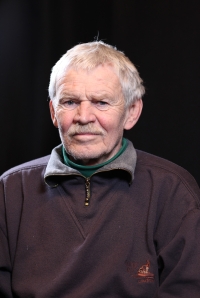The whistles fell silent behind the barbed wire

Download image
Jan Malášek was born on August 14, 1945 in Prague. Both parents, Anna (born Pajerová) and Jan, were members of the 1st Czechoslovak Army Corps, the so-called Svoboda’s Army, during the war. After 1948, the family had to involuntarily move out of Prague and Jan grew up in Liběšice in the Litoměřice region. In 1963, he decided to emigrate from Poland to Sweden on an inflatable dinghy. He was caught during his attempt and spent eight months in prison in Gdańsk and two more in the prison in Litoměřice. Three years later, in the spring of 1966, he tried to emigrate a second time, this time successfully. After a football match in Belgrade, he crossed to the territory of today’s Slovenia, from where he illegally crossed the border into Italy. He spent 15 months in Western Europe, after which he moved to the USA, as there was a lack of job opportunities in Europe. For a year he did all sorts of side jobs—shrimp fishing on the ocean; working for a New York restaurant, in a Las Vegas casino or in a factory in Los Angeles. In 1968, he moved to the Pacific, where he stayed for the next 50 years - mainly on Hawaii, but also on Tahiti, the Cook Islands, Samoa, Fiji and the island of Tonga, from where he watched the Velvet Revolution happen on television. After the eruption of the Kilauea volcano in 2018, he lost his home and returned to the Czech Republic from Hawaii. In 2022, he lived in Říčany near Brno.
